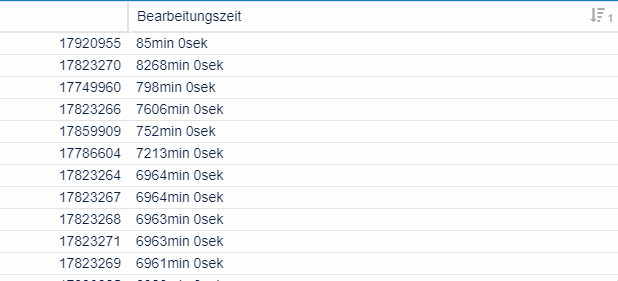Hello everyone,
I am currently trying to convert a duration of minutes (integer) into the datetime format (hh:mm). Like this:
60 --> 01:00
120 --> 02:00
150 --> 02:30
Is this somehow possible within PQL? I looked up a few answers online, but they often include functions that seem to be not supported by PQL.





 The sorting rather impacts the first number instead of the duration. I am pretty sure that sorting a column that has Date-Values will give me the desired result.
The sorting rather impacts the first number instead of the duration. I am pretty sure that sorting a column that has Date-Values will give me the desired result.